National Bureau of Economic Research
Latest from the NBER
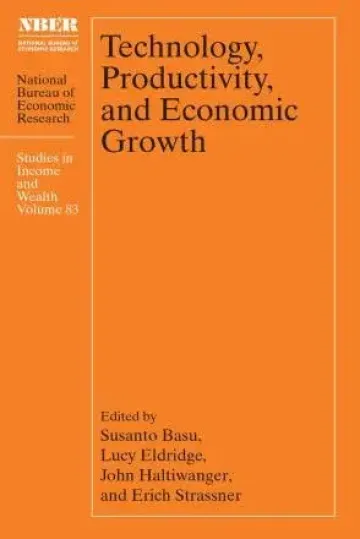
Technology, Productivity, and Economic Growth
news article
Susanto Basu, Lucy Eldridge, John Haltiwanger, and Erich Strassner, editors.
Current technological developments in a number of industries, such as the rise of artificial intelligence and innovations associated with the green energy transition, are likely to have significant and wide-ranging effects.
This volume explores the implications of rapid changes in advanced technology and considers how to conceptualize and model these advances and improve measures of productivity and…
A research summary from the monthly NBER Digest
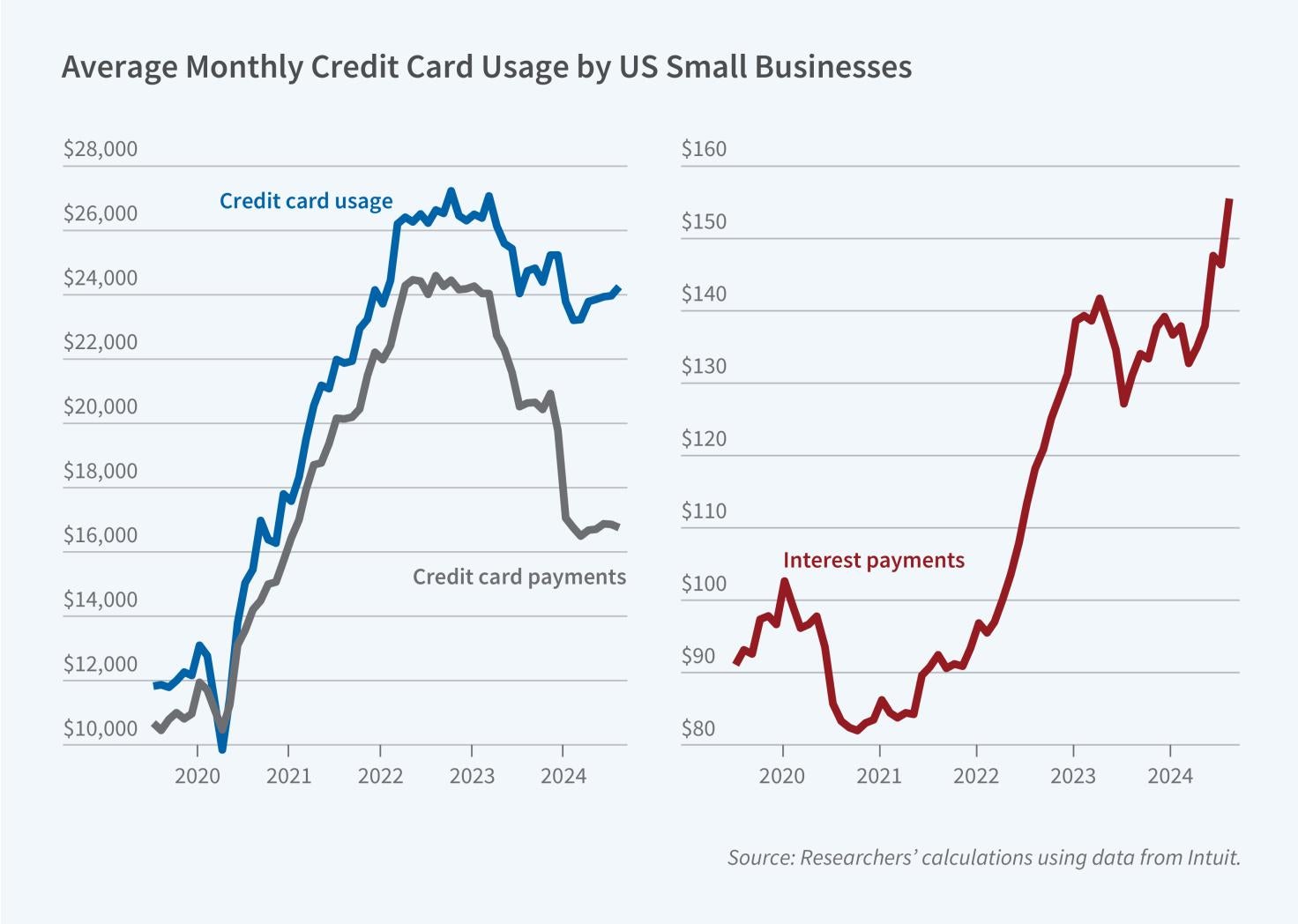
Credit Cards and the Financing of Small Businesses
article
Borrowing on credit cards is an important source of finance for many small businesses. In Credit Card Entrepreneurs (NBER Working Paper 33618), Ufuk Akcigit, Raman Singh Chhina, Seyit M. Cilasun, Javier Miranda, and Nicolas Serrano-Velarde study the experiences of small US businesses during the monetary policy tightening of 2022–23 to shed light on this...
From the NBER Bulletin on Health
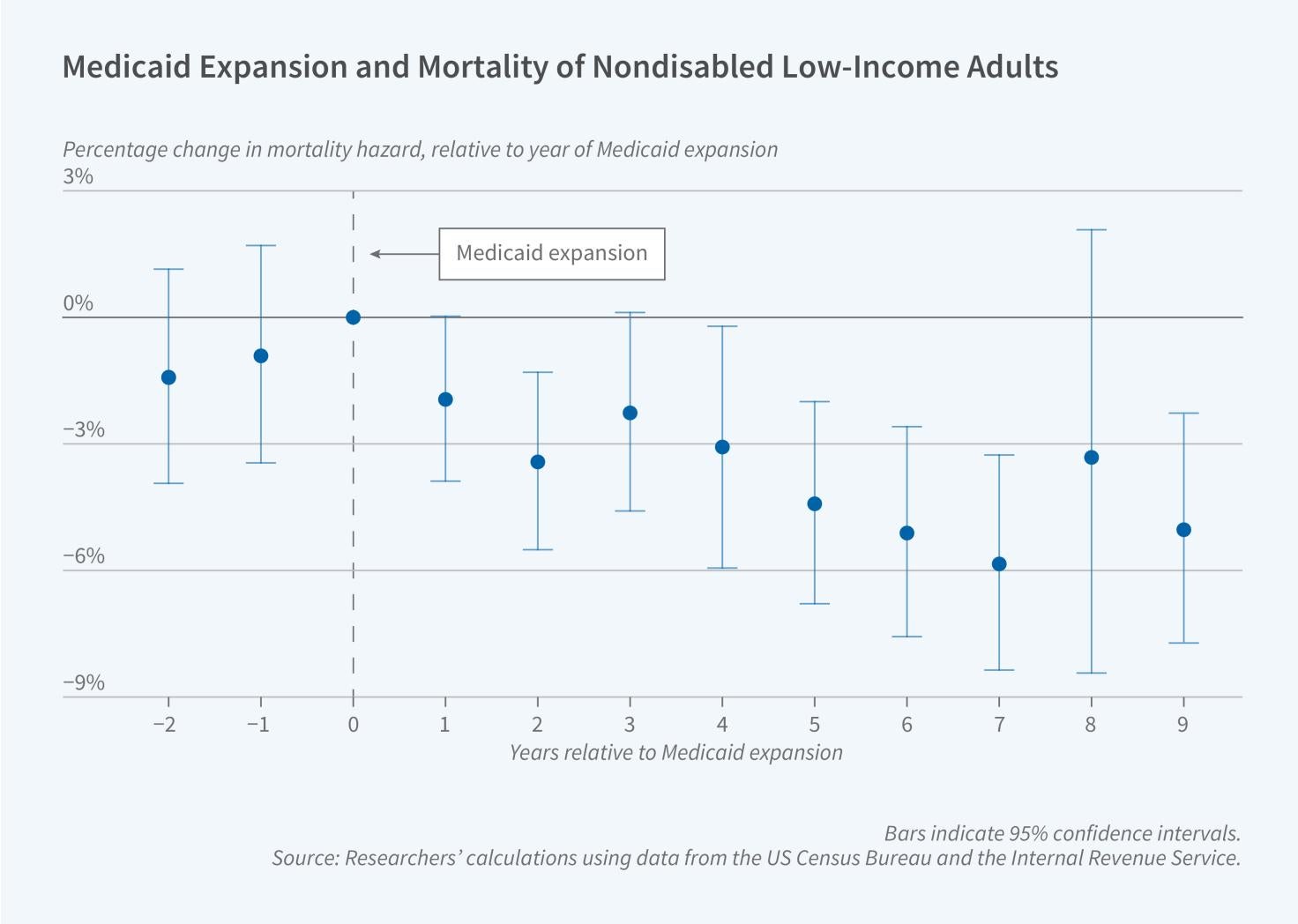
Medicaid’s Lifesaving Effects on Low-Income Adults
article
Lower-income adults in the US are more likely to lack health insurance and to suffer worse health, a correlation that raises the long-standing question of whether health insurance affects health. In Saved by Medicaid: New Evidence on Health Insurance and Mortality from the Universe of Low-Income Adults (NBER Working Paper 33719), Angela Wyse and Bruce D. Meyer present new evidence on this question by evaluating the consequences of recent Medicaid expansions.
To study the impact of Medicaid on mortality, the researchers exploit variation in the state-level adoption and timing of expansions of Medicaid eligibility to childless, nondisabled, non-elderly adults. Most, but…
From the NBER Reporter: Research, program, and conference summaries
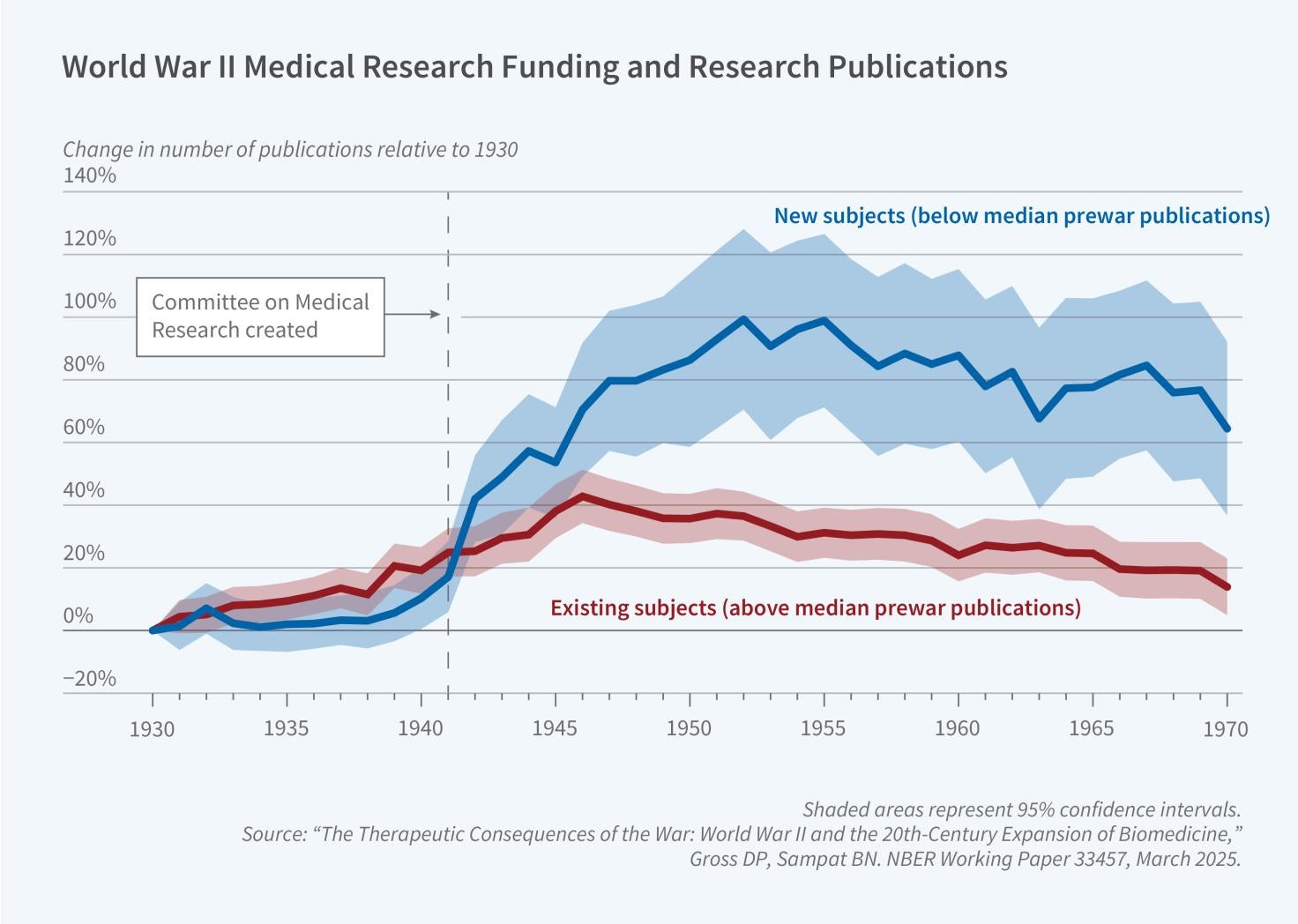
Program Report: Development of the American Economy
article
The Development of the American Economy (DAE) program was one of the first research programs launched by Martin Feldstein in 1978 when he formalized the modern structure of the NBER.
The mission of the program is to research historical aspects of the American economy. Its members are economic historians whose specific interests span many subfields within economics, including macroeconomics, labor economics, finance, political economy, trade, and industrial organization. Broadly, economic history research comes in two flavors. First, economic historians study the evolution of economic trends that illuminate issues relevant to the modern economy, such as the entry of women in the labor force and the moderation of economic crises over time. Second, economic historians use the natural experiments offered by history to test economic…
From the NBER Bulletin on Entrepreneurship
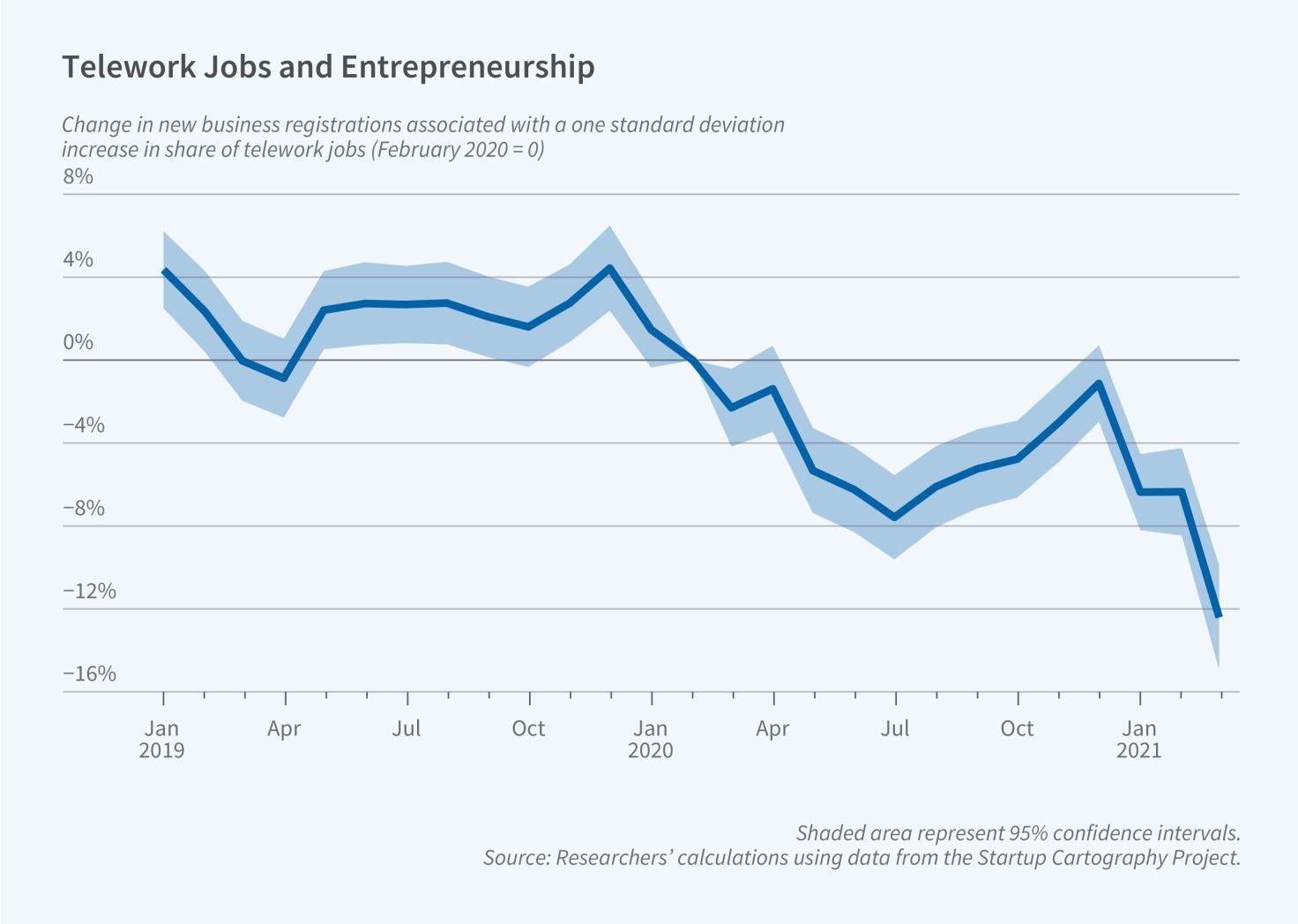
Entrepreneurship as an Alternative to Flexibility at Work
article
The surge in remote work in recent years has transformed labor markets, with potentially important implications for the interaction between workplace flexibility and entrepreneurship. In Hustling from Home? Work from Home Flexibility and Entrepreneurial Entry (NBER Working Paper 33237), John M. Barrios, Yael Hochberg, and Hanyi (Livia) Yi explore whether the increased flexibility provided by work-from-home (WFH) arrangements has affected entrepreneurial decisions. They focus on the COVID-19 pandemic as a natural experiment and analyze how the sudden shift to remote work affected new business creation. Guided…
Featured Working Papers
David Jinkins, Elira Kuka, and Claudio Labanca find that a cut welfare benefits for refugees in Denmark raised both labor supply and property crime committed by refugees, and that there were spill-over effects on the refugees’ non-Danish neighbors, among whom the crime rate rose by about 9 percentage points.
Paid family leave access is associated with a 5.7 percentage point increase in the likelihood that individuals with disabilities receive informal care from their children, according to Yuting Qian and Xi Chen.
Following the 2022 reversal of Roe v. Wade, intimate partner violence rates for reproductive-aged women in counties where abortion access was significantly reduced increased by more than 7 percent, according to Dhaval M. Dave, Christine Durrance, Bilge Erten, Yang Wang, and Barbara L. Wolfe.
Defaulting 20 percent of retirees’ 401(k) assets over a threshold into an immediate annuity enhances retirement security for most plan participants, according to Vanya Horneff, Raimond Maurer, and Olivia S. Mitchell.
Replacing the gas tax with a vehicle miles travelled tax would benefit rural and central-US based regions, where gasoline-powered vehicles are relatively more common, while urban and coastal areas would experience higher taxation, according to new estimates by Christopher R. Knittel, Gilbert E. Metcalf, and Shereein Saraf.
In the News
Recent citations of NBER research in the media
_______________________________________
Research Projects
Conferences
Books & Chapters
Through a partnership with the University of Chicago Press, the NBER publishes the proceedings of four annual conferences as well as other research studies associated with NBER-based research projects.
Videos
Recordings of presentations, keynote addresses, and panel discussions at NBER conferences are available on the Videos page.